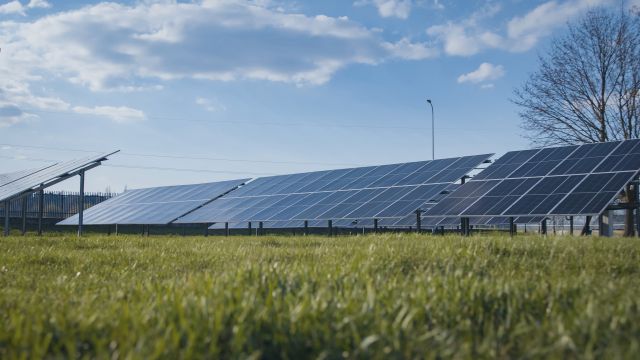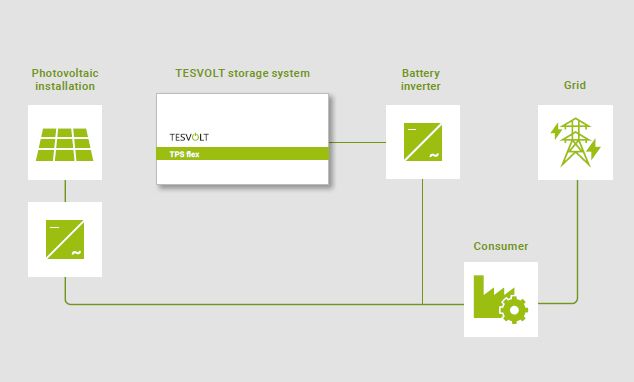The potential transition to a hydrogen economy poses a variety of challenges for industry. In conventional gas infrastructure, hydrogen can lead among other things to material embrittlement processes. Because of its atomic size, it diffuses into the existing crystal lattice of metals, where it creates internal stresses that can lead to cracks and subsequent material
defects.
With this in mind, PGNiG intends to use the pilot plant in Odolanów to investigate not only the production of green hydrogen but also its impact on the plant infrastructure. Furthermore, the plant will be used to test weather-dependent production of hydrogen and to parametrise the process.
To enable the production of completely green hydrogen, PGNiG decided to build a photovoltaic installation with a capacity of 490 kWp to power the hydrogen electrolyser. The installation of an energy storage system was necessary to ensure a stable energy supply around the clock and “zero feed-in” linked to connection conditions from the distribution grid operator.
Requirements for a storage solution:
- Maximum safety in a zone with a high risk of gas explosion
- Maximum usable capacity with high
- charging efficiency (min. 90%)
- Stable and multifunctional energy management system (EMS) with cloud located in Europe


 German
German


 by
by